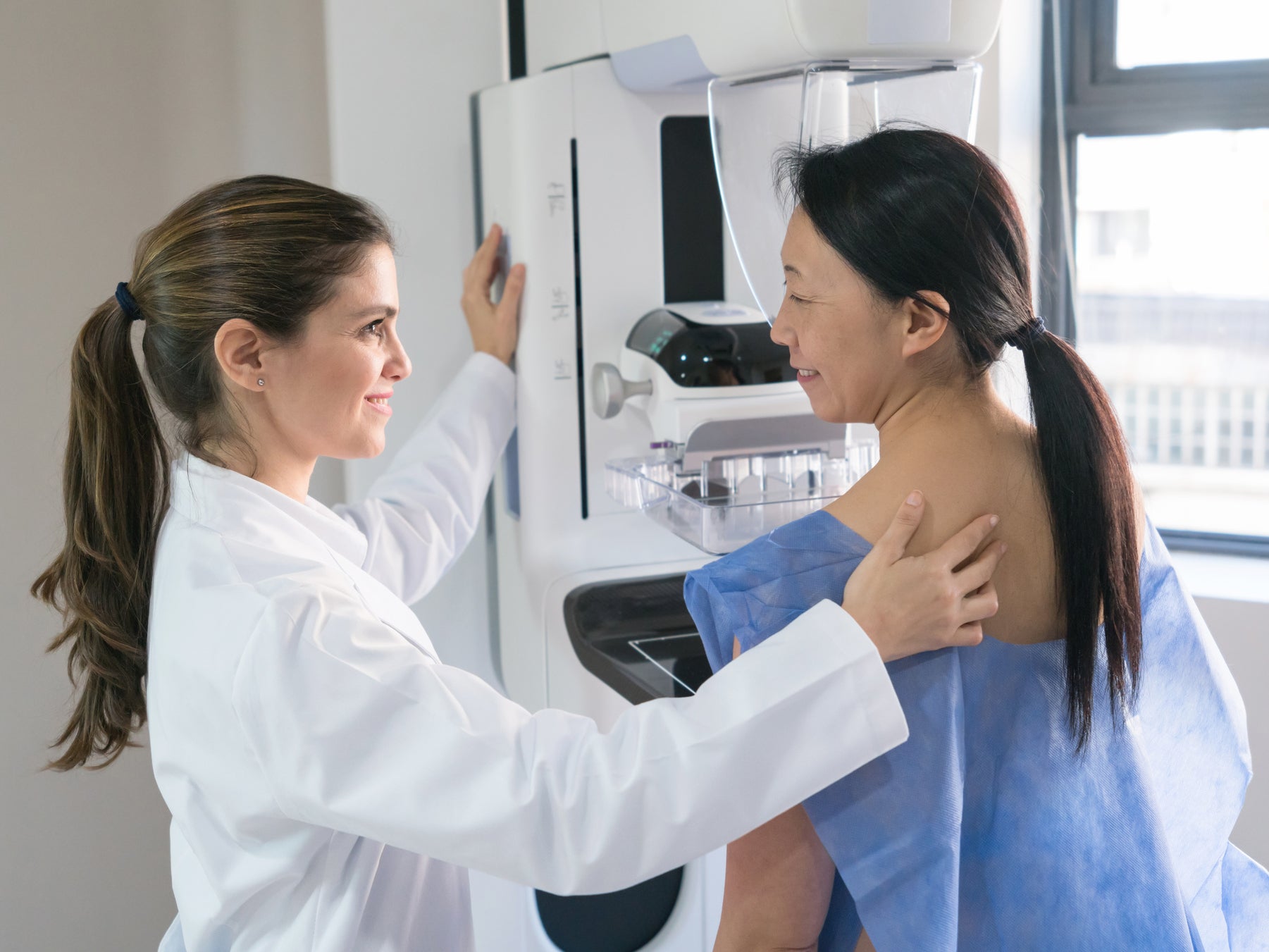Women must be offered smear tests and mammograms on lunch breaks, NHS report states
Cervical screening attendance has reached an all-time low since records began

Your support helps us to tell the story
From reproductive rights to climate change to Big Tech, The Independent is on the ground when the story is developing. Whether it's investigating the financials of Elon Musk's pro-Trump PAC or producing our latest documentary, 'The A Word', which shines a light on the American women fighting for reproductive rights, we know how important it is to parse out the facts from the messaging.
At such a critical moment in US history, we need reporters on the ground. Your donation allows us to keep sending journalists to speak to both sides of the story.
The Independent is trusted by Americans across the entire political spectrum. And unlike many other quality news outlets, we choose not to lock Americans out of our reporting and analysis with paywalls. We believe quality journalism should be available to everyone, paid for by those who can afford it.
Your support makes all the difference.Women should be offered mammograms and smear tests in their lunch breaks to help boost cancer survival rates, according to a new report.
On Wednesday, Professor Sir Mike Richards, the former national clinical director for cancer, published a review of the current NHS cancer screening system.
In the report, Richards warned that lives have been lost because of the way the programmes have been run and called for radical change.
The NHS advisor recommended that women should be offered the chance to attend cancer screenings during evenings and weekends, and in locations close to their home or work, while remaining registered with a local family doctor.
Richards added that giving women more choice over where they go for tests, and introducing online booking for appointments, could halt the decline in the number of people attending screenings.
According to UK charity Jo’s Cervical Cancer Trust, the number of women attending cervical screenings in the UK has reached an all-time low since records began 21 years ago, with over one in four not attending when invited.
Similarly, uptake of mammograms has reached a 10-year low with NHS figures showing that 71.1 per cent of women in England aged 50 to 70 attended screenings in 2016/17 - down one per cent from the previous year.
Currently, responsibility for cancer screening is shared among a number of bodies, something that Richards states has lead to “confusion, delays and risks to patient safety”.
Instead, Richards has called for Public Health England to be stripped of responsibility for delivering the programme, a recommendation which the Health Secretary, Matt Hancock, immediately accepted.
“This lack of clarity has contributed to delays in implementing changes which have been shown to save lives,” Richards said.
“These delays have inevitably led to avoidable loss of life”.
Richards highlighted the slow introduction of new tests for bowel and cervical cancer, stating that the current system is working so slowly that the new FIT test for bowel cancer is only being introduced now, 16 years after pilot schemes showed success.
Similarly, changes to cervical cancer screening – bringing in a new system of HPV tests – were recommended four years ago but have yet to be introduced.
Every year waiting for the new tests means an extra 600 cases of disease, Richards’ report warns.
“People live increasingly busy lives and we need to make it as easy and convenient as possible for people to attend these important appointments,” Richards said.
Simon Stevens, NHS chief executive, has backed the plans.
“I'm grateful to Sir Mike for taking on this important assignment,” Stevens said.
“Sir Mike’s sensible recommendations keep all that is good about NHS screening services, while rightly setting out a blueprint for more convenient access, upgraded technology, and progressively more tailored approaches to early diagnosis.”
Join our commenting forum
Join thought-provoking conversations, follow other Independent readers and see their replies
Comments